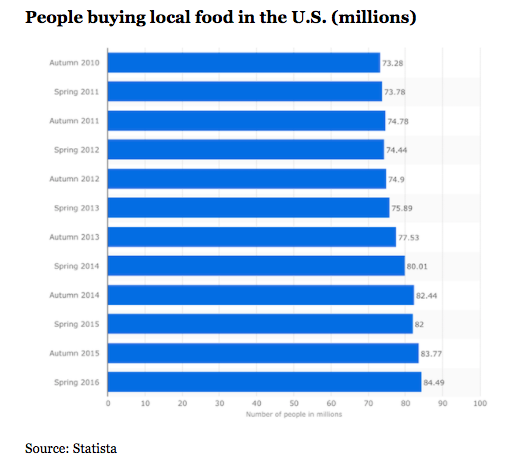Why Diets Do Not Make Good Investments
We want to invest in food trends, not diet fads. Here’s why.
Paleo, gluten free, juice cleansing, no sugar, low carb, low fat, high fat, South Beach – if there’s one thing these diets all have in common, it’s their transience.
When I was a kid, my parents went on their first “grapefruit diet”. It was to be the first of many. Even then, I couldn’t reconcile that two health-conscious, otherwise reasonable people would restrict their consumption to nothing but grapefruits for weeks on end, just because it was the latest diet craze.
I forgot about it for years until I started my third juice cleanse in 2011. That’s when I realized I was effectively doing the same thing they did (but for 10x the cost).
Diets come and go. Fat, sugar, carbs, and sodium are on a rotating circuit of nutrient scapegoats. They’re all bad to varying degrees, but which is the worst? And what’s the optimal combination? Ask ten people and you’re likely to get ten different answers.
When cleansing reached peak popularity a few years ago, it wasn’t new. My parents followed the same basic principles in the mid-90s. Think high-fat diets are a new idea? Nope. They’ve been in-and-out of fashion for at least 80 years, since cutting fat was first discovered as a cure for epilepsy.
I’m sure categorizing Paleo as a fad will irk some people – if there’s another thing all the diets up top have in common, it’s that their followers are ardent advocates – but I don’t mean to disparage diets. I actually think they’re great. Reducing fat, cutting out carbs, or fasting intermittently might be transformative for some people.
But our bodies are all wildly different, there is rarely a one-size-fits-all solution, nutritional science is constantly evolving, and consumers are generally fairly fickle.
As a result, startups based on new diet fads tend to accelerate quickly, but plateau once they’ve maxed out their passionate, early-adopter base. That can often lead to a pretty great result (plenty of juicing companies became very successful at the height of the craze), but while these companies can grow quickly, they can also crash and burn just as fast if the dietary winds change.
Remember Atkins Nutritionals? Me neither. They filed for bankruptcy in 2005.
Lean Cuisine sales dipped until Nestle pivoted away from low-calorie, low-fat messaging towards tags like “no preservatives” and “non-GMO.” Brand manager Chris Flora even declared “we recognize that diets are dead.”
So while plenty of entrepreneurs have prevailed by capitalizing on these crazes, diets generally do not make for good long-term business.
You know what does make for good long-term business? Food trends.
Diet fads are restrictive, cyclical (the same basic diets fall in and out of fashion every few decades), and are typically tied to weight loss or medical benefits for a select group.
In contrast, food trends are more gradual and impact our entire food system. Consumer preferences for transparent labeling, local sourcing, and fewer processed ingredients are examples of food trends, not dietary fads. How do I know? They didn’t suddenly appear after a popular book or a celebrity endorsement. They’re trends because they’ve been, well, trending.
For instance, although “locavorism” has become a buzzword in the past few years, the shift towards buying local has been gradual and spans disparate demographics. The benefits are both broad and deep, including supply chain efficiencies and community strengthening, in addition to the health benefits of using fewer processed ingredients.
 Food trends represent seismic shifts in the way we consume food as a society, not the way a select group of individuals tries to lose weight. Startups aiding those trends are poised for much bigger success than those focused on what’s fashionable.
Food trends represent seismic shifts in the way we consume food as a society, not the way a select group of individuals tries to lose weight. Startups aiding those trends are poised for much bigger success than those focused on what’s fashionable.
While the venture capital investing model has typically favored fast growth and a quick exit, we believe the ability to do good comes from supporting longer-term systemic change, not dietary fads.
Some of these systemic changes include reducing food waste, shifting from industrial and processed to fresh and local, supporting balanced nutrition, promoting environmentally-friendly packaging and supply chains, and utilizing more transparency in ingredients and sourcing.
So while diet startups might generate a better ROI, companies based on true shifts in consumer behavior have the ability to truly revolutionize our food system. And those are the kinds of businesses we want to invest in.